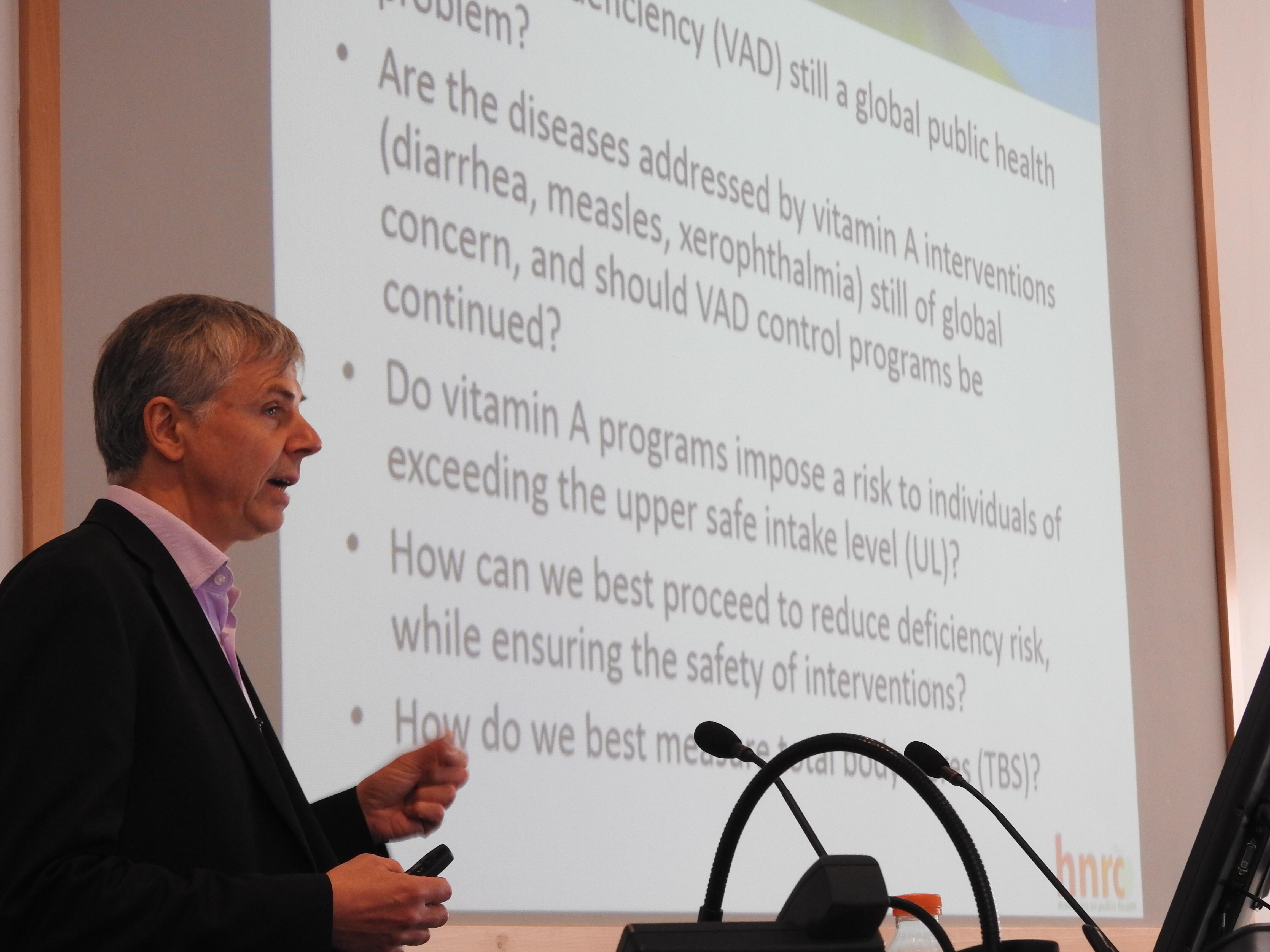
The LSTM Seminar Series began again this week with a talk from Georg Lietz, Professor of International Nutrition at the Human Nutrition Research Centre at Newcastle University. His presentation entitled: The importance of measuring total body status of vitamin A was introduced by LSTM’s Professor Stephen Allen.
Professor Lietz began by posing the question of whether vitamin A deficiency (VAD) is still a global health problem and whether the control programmes should be continued, particularly considering that interventions could lead to the opposite problem of overconsumption, potentially leading to toxicity problems including hypervitaminosis A. It is still thought that VAD causes as many as 100,000 deaths in children under the age 5 annually, with the biggest problems concentrated in sub-Saharan Africa and South East Asia.
While the WHO continue to promote interventions involving fortification with vitamin A, even following the improvements made because of the inclusion of VAD in the Millennium Development Goals, Professor Lietz cautioned that data may not be reliable as two thirds of countries with VAD recorded no data at all and if it exists it is over 10 years old.
He continued by looking at ways of reducing the risks associated with VAD, and ensuring that interventions do not cause hypervitaminosis A, talking through several examples from previous and current studies. He looked at physiological and gender reasons for differences for the handling of vitamin A by the body, and described the retinol isotope dilution (RID) technique as possibly the most effective way for measuring the total body stores of Vitamin A. Therefore, RID can potentially provide more accurate data which can be used to inform interventions and potentially alter the current upper level guidelines to determine safe levels of vitamin A.
You can watch the full seminar here.